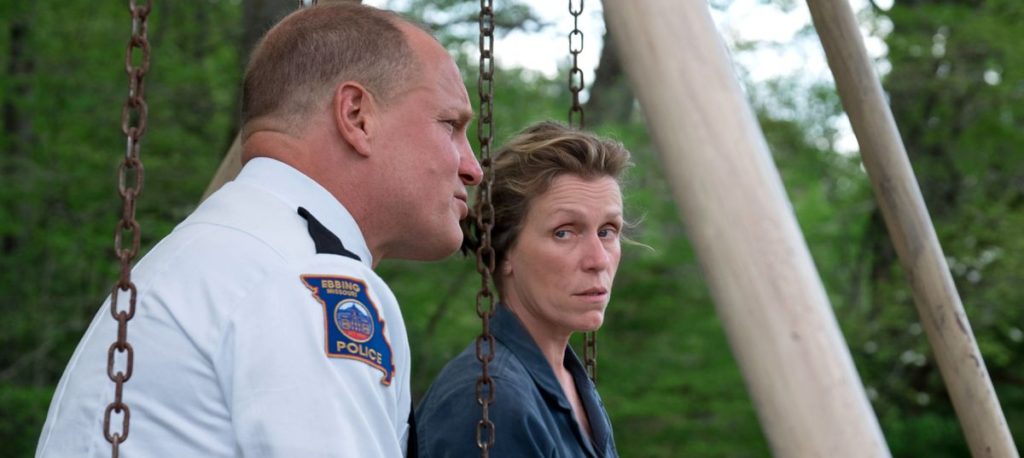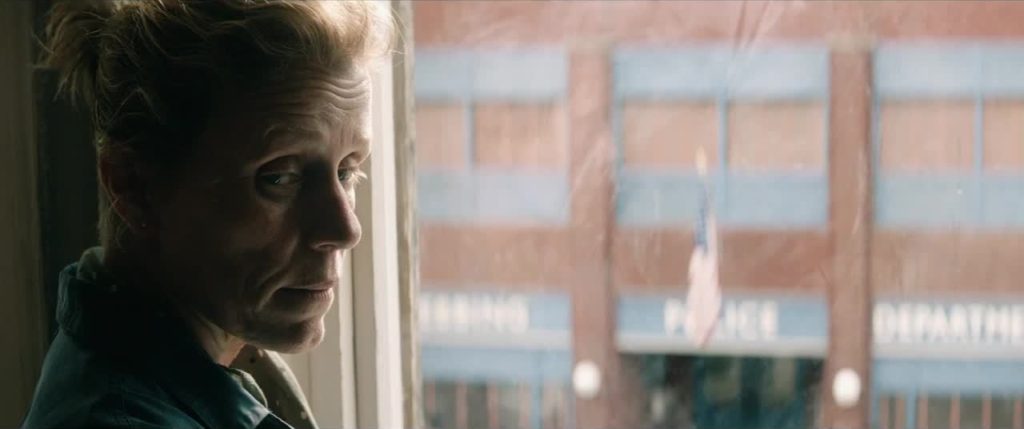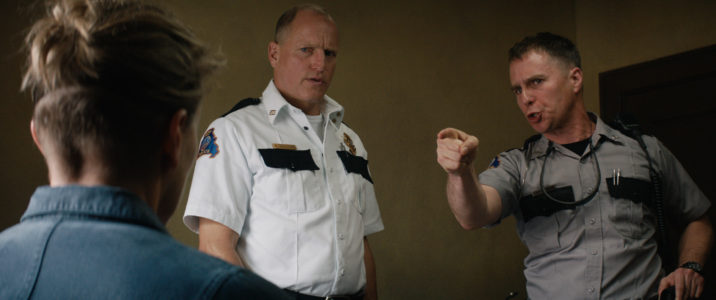If comedy and tragedy occupy the same spectrum, as the old adage goes, then at what point would one find rage on that scale? Perhaps somewhere between the two seems to be the argument posited by Martin McDonagh. The Irish playwright-cum-filmmaker’s very best work on stage and screen peers into the absurd lunacy that is the world his characters occupy to pinpoint the anguish and anger corroding their souls. This is very much the case in his newest film, Three Billboards Outside Ebbing, Missouri. The protracted title alludes to an irony in its banal description of the catalyst of a feud between a grieving woman and the town’s police department, but there is an intimation of fatalism bordering on the nihilistic. The billboards are merely incidental when the real focus of McDonagh’s tale is of a community serving as a microcosm for the country in its reservoirs of despair and fury frothing to the surface.
Certainly the angriest denizen of the eponymous town would be Mildred Hayes. She is played by Frances McDormand, an actress who has long retained the reputation of being one of our most invaluable performers. Yet not since Marge Gunderson has McDormand arguably been as commanding, as utterly captivating as she is in this film. Here, she plays a woman so deeply ensconced in dolorous agony over the brutal rape and unsolved murder of her daughter that her grief has calcified into every fiber of her being, right down to her weathered, weary mien. Her decision to rent three billboards along a lonely stretch of road several of her peers describe as being traversed only by those “lost or retarded” sends the entire town into upheaval. Her specific target, the beloved police chief Willoughby (Woody Harrelson), is not unsympathetic toward her plight, arguing that the case has drawn too many dead ends. Mildred believes the police have become sidetracked with racial discrimination against African-Americans. Both of these indomitable figures may have a point to make.

Mildred’s opposition manifests within several of her neighbors, most prominently a fatuous officer played by Sam Rockwell. He has garnered a particularly notorious reputation for what he combatively terms “people of color torture”, a phrase Mildred initially substitutes the first three words of with a more inflammatory noun. His misanthropic, defensive fury is only articulated in rambling alcohol-fueled digressions and with the assistance of the mother he cares for at home. Rockwell has proven himself a versatile actor, including his scene-stealing turn in McDonagh’s previous film Seven Psychopaths. But he is given a remarkable role which becomes intricately entwined with Mildred’s quixotic quest for retribution in unexpected and disarmingly poignant ways. In an underrated career full of exceptional performances, Rockwell’s work as the wounded fool seeking a moral compass ranks among his finest.
I could dedicate this entire review to the superb ensemble, which includes McDonagh regulars and newcomers alike. All of them are more than game to handle his profanity-laden dialogue coursing through scenes that can turn from earth-scorching hilarity to devastation in the blink of an eye. McDonagh has always challenged himself to balance such seemingly disparate components with a continued thematic focus on the transformative nature of violence and the absence or loss of children. There is even yet another reference to Nicolas Roeg’s Don’t Look Now, which served as an overt influence on McDonagh’s directorial debut In Bruges. If the tragic death of a child in Roeg’s film was intensely heightened by foreshadowing and dread, the murder of Mildred’s daughter is only alluded to as an inexplicable act of cruelty made worse by the final exchange of petty words shared between mother and daughter revealed in a brief yet painful flashback. In this, more than any of his previous films, McDonagh exemplifies the shortcomings of parents and the ways they fail their children due to either their own machinations or forces beyond their control. More often than not, it’s a little of both.

If you have seen and liked any of Martin McDonagh’s previous works, there is a very good chance you will whole-heartedly enjoy his latest. But for the uninitiated and acolyte alike, Three Billboards Outside Ebbing, Missouri is a masterful and ultimately humane film that interrogates the value of power, particularly the hypocrisy immanent in our current sociopolitical hegemony, in the midst of insoluble sorrow. Flannery O’Conner, whose short story A Good Man is Hard to Find is briefly referenced and serves as a thematic counterpoint, once said that “violence is strangely capable of returning my characters to reality and preparing them to accept their moment of grace.” McDonagh is one of her few successors who could deservedly say exactly the same about his.
